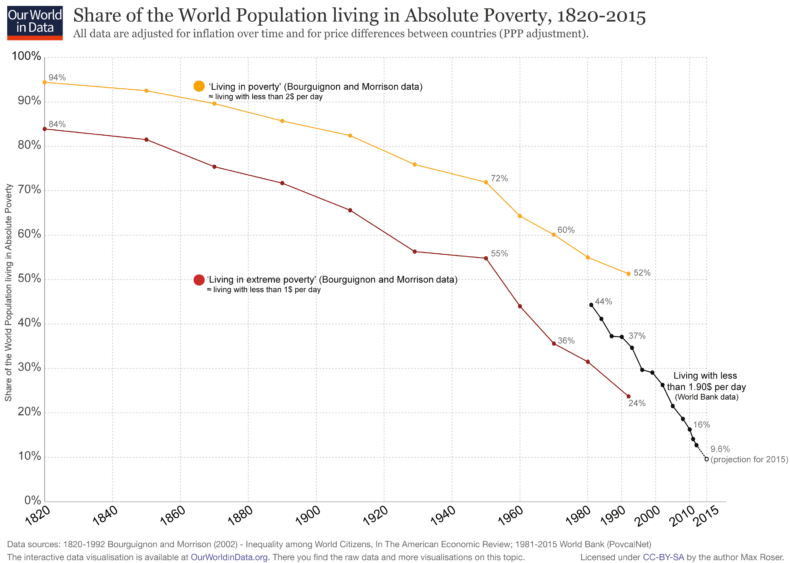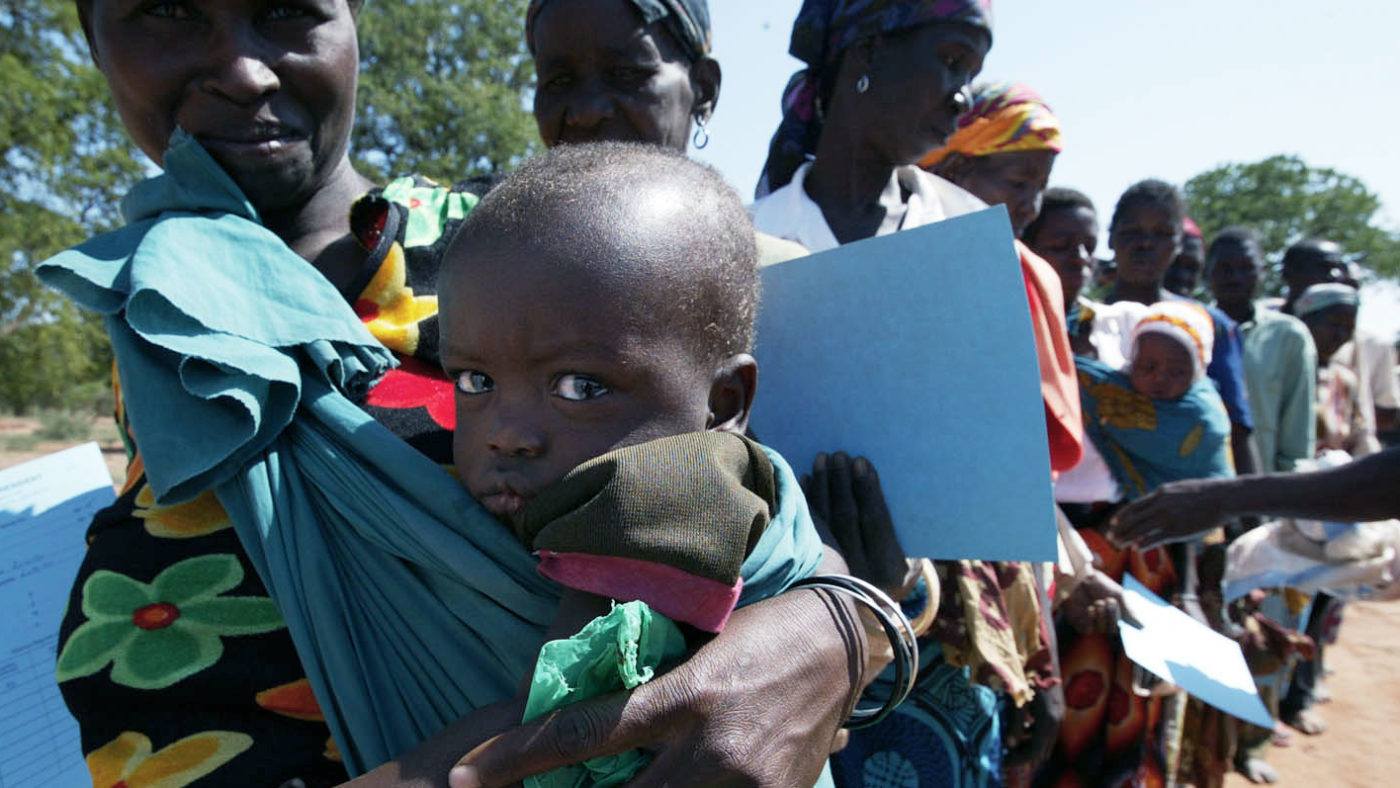It is wonderful that Oxfam recognises the “astonishing progress in poverty reduction” over the past few decades, and that “business can be a great force for good” in this respect. But I want to be greedy. I want Oxfam and all those other organisations which, rightly and commendably, want to see a reduction in global poverty to take one more step: to recognise that much of this astonishing progress has marched hand in hand with the extension of free trade, democracy, property rights and the rule of law around the world.
This week, there has been something of a debate on CapX – ahead of a similar debate the Centre for Policy Studies is holding at Conservative Party Conference – about the causes, and potential cures, for global inequality.
Yes, there is too much inequality. And we are certainly “not there yet”. But we should unashamedly celebrate the fact that the share of the world’s population who are living on less than $1.90 a day has fallen from 44% in 1980 to 9.6% in 2015.

We should also be careful when looking at the data on both wealth and income inequality. For example, as Tim Worstall has explained, “wealth” is defined as assets minus debts. So a brilliant Harvard student, who will have significant student debts and no real assets (but fantastic potential to earn) will be classified as one of the least wealthy people in the world.
Using this definition, there are more poor people in the US or Europe than there are in China: in fact 30% of the world’s poorest people when measured by wealth are actually in the rich countries of Europe and North America. But that is because rich countries have relatively efficient financial markets, which allow people to take on debt to go to university or buy their own homes.
Even when it comes to income inequality, demographics may well be about to provide some cause for optimism. As Oxfam have pointed out (along with Thomas Piketty), the return on capital has been higher than the return on labour in recent years – meaning that the rich have seen their assets grow more quickly than the poor have their wages.
Partly, this can be laid at the door of asset-purchasing programmes in Western economies, such as QE. More important than that, though, is the simple fact that a couple of billion more low-paid and low-skilled labourers have joined the global economy. Should we be surprised that the returns for low-skilled labourers elsewhere have fallen, while those for high-skilled labour and on capital have risen?
The key thing to understand, however, is that this process has run its course. The recent exponential growth of the global labour force has now reached its climax. In many Western economies, as well as in China, the labour force is set to shrink. The above process will then go into reverse: when labour is not so abundant, its share of future prosperity can be expected to increase.
If we accept that poverty is falling dramatically (if not universally), and that inequality may fall in the face of demographic pressures, then maybe it is best to look at what can best be done to further encourage such welcome developments.
On that score, surely reducing absolute poverty is both the most effective and the most morally desirable way of reducing inequality?
Here we can look at Zambia, as Mark Goldring of Oxfam did in his previous CapX article. He points out that while GDP growth per capita averaged 3% between 2004 and 2013, the number of people living below the $1.25 poverty line grew from 65 percent in 2003 to 74 percent in 2010.
But why was that?
Here it is worth looking at the Index of Economic Freedom, which reports:
Corrupt governing practices leave millions of Zambians in severe poverty. The judicial system is weak and falls short in unbiased enforcement of the law, undermining anti-corruption efforts. Corruption is also a major obstacle and deterrent to foreign investment.
High commodity prices have driven a decade of strong economic growth, but the economy would benefit tremendously from diversification. Bloated government payrolls, shifting tax laws on the mining sector that scare away investors, and spiralling government debt exacerbate the economy’s problems.
The best way of improving the lives of millions of Zambians would be to address the root causes of the problem. That means focusing our efforts on battling corruption and upholding the rule of law. But it also means encouraging property rights, the importance of which is illustrated by this article by an aid worker in Zambia.
As Hernando de Soto has explained, land title reforms can have a huge impact, by unlocking the $10 trillion of capital that is currently impossible for the poor to access. The work in this area of NGOs such as Oxfam, but also a range of free-market think tanks, can continue to provide tangible, lasting benefits.
We can dare to be optimistic. Slowly, and sporadically, and with too many exceptions, the world is getting to be a better place – at least in terms how much of it benefits from the magic formula of free trade, property rights, democracy and the rule of law. And this zone of prosperity is spreading at a faster pace than at any other time in human history.
Take democracy. As Johan Norberg points out in his new book, Progress: Ten Reasons to Look Forward to the Future:
Not a single African country saw a peaceful transfer of power at the ballots in the 1960s and 1970s, and there was only one in the 1980s. But then suddenly in the 1990s, 12 countries held peaceful elections… Since 1990, more than 30 African governments and presidents have been voted out of office.
It is not just democracy. Never before has the world seen such a growth in life expectancy, universal education, literacy, sanitation and human rights. All while war and hunger have been in rapid decline.
None of this, I stress, should be an argument for complacency. There will always be plenty of cases of market failure, human venality and crony capitalism. Nor can we ever be immune from the dreadful consequences of war and natural disasters. There is no recipe for utopia.
But the astonishing progress of the past few decades should be a cause for optimism – that the quality of life for literally billions of individuals across the world will continue to improve.
And if this is the case, then the resulting policy prescriptions, whether for Labour supporters or for Conservatives, whether for Oxfam or for free-market ideologues, should be clear: to encourage free and competitive markets, the rule of law, property rights and good government.


